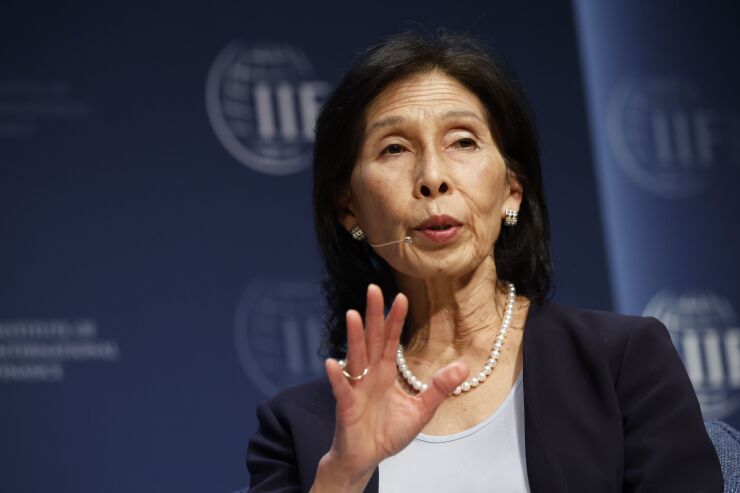The Treasury Department's top official for financial markets and stability expressed little urgency over the federal government's need to prepare for the potential launch of a digital U.S. dollar.

Regulators need to examine whether a central bank digital currency — or CBDC — would actually improve the speed or cost of real-time interbank payments, which the Federal Reserve is aiming to introduce in 2023, said Nellie Liang, undersecretary for domestic finance at the Treasury.
Asked whether a digital dollar would help defend the primacy of the dollar in international commerce or as a reserve currency, she was even clearer.
"My view is our global leadership doesn't come from our technology," Liang said in an interview at Bloomberg News's Washington office Monday. "It comes from our governance system, the rules that govern our financial markets, our rule of law and the safety and soundness of our institutions."
No current need
If after five or more years many countries have introduced a CBDC, she added, that might become a factor in pushing the U.S. to adopt one. But she emphasized the U.S. government's study of a potential CBDC was mainly to be prepared for a need that didn't currently exist.
In a
The Fed in January published a
"The Federal Reserve does not intend to proceed with issuance of a CBDC without clear support from the executive branch and from Congress, ideally in the form of a specific authorizing law," the white paper said.
Views on the Fed's Board of Governors vary. Fed Gov. Christopher Waller has emerged as a central bank digital currency skeptic, while Vice Chair Lael Brainard has cast the issue in light of a more efficient payment system that could benefit the underbanked and global economic strategy.
Fed Chair Jerome Powell has shown no urgency to decide the matter soon.





